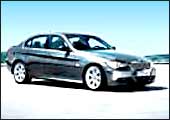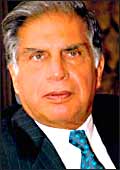| European
connections go back over half a century at the Bangalore-based ready-to-eat
(RTE) food maker MTR, which last fortnight was acquired for around
$100 million (Rs 440 crore) by the $8.8 billion (Rs 38,720) Norwegian
consumer goods giant Orkla. In 1950, Yajnanarayana Maiyya, founder
of the restaurant (which later expanded into the rte market), overhauled
hygiene standards after a long European tour, setting in place a
five-decade association with the continent. Since that time, MTR
has gone from one restaurant on Bangalore's busy J.C. Road, to a
Rs 165-crore company with some 120 varieties of rte food under its
belt. Despite these numbers, MTR Foods has struggled to compete,
with the topline remaining stagnant at Rs 140-150 crore mark for
the last three-four years. A retail venture in the form of Namma
MTR (our MTR) is restricted to just one outlet in south Bangalore
and a handful of kiosks around the country.
While MTR's packaged food idea was novel three decades ago when
it sold its first package of rava idli mix, since then several
competitors, most notably ITC Foods, have entered the nascent,
yet fast-growing market. According to some industry estimates,
the rte market is worth Rs 250-300 crore and is growing 20-30
per cent annually. While MTR has managed to scale up its revenues
from Rs 130 crore in 2003-04 to around Rs 150 crore at the end
of last fiscal, that's some distance away from the ambitious Rs
600 crore target originally laid out for 2005-06.
The problem for MTR could be that competitors such as ITC Foods
have been able to better leverage their supply chain and retail
reach and expand from rte foods into related categories such as
biscuits and toffees. At the same time, a poor supply chain has
meant that MTR has been forced to shutter its retail operations
in cities like Delhi and Chennai. "Our reach to over two
million points from our tobacco business is a huge advantage compared
to our rivals," says Hemant Malik, Head, Marketing, ITC Foods.
MTR officials, including Chairman Sadananda Maiyya, refused to
comment on this and other queries, citing unspecified regulatory
issues.
The urgency to sell the business may have also been hastened
by venture capitalists, JPMorgan Global Packaged Foods, Indocean
Packaged Foods and Magnus Capital Corporation, who jointly control
around 40 per cent of the company and have reportedly been clamouring
for an exit for some time. Maiyya did try to professionalise the
company by hiring former HLL Foods honcho J. Suresh to run the
foods business, but after a brief and bright period (when turnover
doubled) the latter found himself on the way out. While both Maiyya
and Suresh publicly deny any differences, industry insiders argue
that the latter found it difficult to function when the family
continued to tightly hold onto the reins as the company expanded
its product offerings and its geographical reach into the European
and North American markets.
However, with the market growing at around 30 per cent annually
and MTR planning a Rs 10-crore expansion of its production facilities
near Bangalore, Orkla may have found a convenient passage into
the Indian market. "MTR Foods is located in an interesting,
growing market. We expect to spend some time learning and assessing
the situation before any final decisions are made concerning further
strategic investments in India," says Torkild Nordberg, Executive
Vice President in charge of Orkla's Branded Consumer Goods business.
The company's products are focussed primarily on the European
markets and this move could give it a strong foothold in the fast-growing
Asian market, say industry executives. Orkla is expected to keep
MTR and its products on shelves for some time and also leverage
MTR's distribution network to vend its products (it sells everything
from processed potatoes to juices and jams) in the Indian market.
-Rahul Sachitanand
First
Lap of Luxury
BMW thinks Indian market is ready for its
premium cars.
 |
| Full throttle: BMW on the
move |
Two decades ago, peter Kronschnabl
came to India to do his thesis on the motorcar in India, now he
finds himself President of German luxury-car maker BMW in India
and about to commence assembly of vehicles in the country. "India
is an important market to us, it is a fast growing economy and more
people are buying better cars," he says.
So, how big is the market for luxury/premium cars in India?
According to data from the Society of Indian Automobile Manufacturers
(SIAM), cars classified as premium (more than 4.7 metres in length)
and luxury (longer than five metres) have sold a cumulative 4,788
units for the first 10 months of the current fiscal. Add to this
imports of cars and luxury SUVs (which are not counted in SIAM
data) and that number exceeds 5,000. Kronschnabl believes this
market will double in five years.
But BMW India does not plan to bring in its complete range to
India just yet. Assembly, which begins at the Chennai plant in
a few months, will initially be restricted to the 3-series (with
three engine options) with the 5-series coming later. "We
have even announced our pricing; the price of our 320ia, which
will start our range in India, will be Rs 26.95 lakh ex-showroom
all India." With an initial distribution strategy that will
involve eight showrooms in six cities, including Chandigarh ("The
Punjab market is crucial", Kronschnabl says), BMW does not
plan to be an also-ran in India.
-Kushan Mitra
Trucking
With Fiat
Tata Motors prefers Fiat to Daewoo
for Europe.
 |
| Ratan Tata: Tapping foreign
markets |
Tata motors' ambitions of
becoming a major global automotive player received a fillip last
fortnight when the company announced that it would be extending
its partnership with Italian giant Fiat to make pick-up trucks in
Argentina. With an investment of $80 million (Rs 352 crore), the
truck will be based on the new-generation Tata pick-up and will
be made at Fiat's plant in Cordoba in Argentina. Production is scheduled
to begin in 2008 with an annual capacity of 20,000 units. The trucks
will be sold in southern and central America as well as parts of
Europe through Fiat's distribution and importer network.
"I am pleased at this first step in expanding this relationship
beyond Indian shores. Latin America is a key market for us. We
hope this would augur well for a truly global partnership across
markets and business segments," says Tata Group Chairman
Ratan Tata in an official statement.
Tata Motors also signed a memorandum of understanding (MOU)
with Fiat's commercial vehicle arm, Iveco, to analyse the feasibility
of cooperation across markets, in engineering, manufacturing,
sourcing and distribution of products, aggregates and components
for commercial vehicles.
Fiat and Tata Motors formalised an alliance in December 2006
following an MOU in July last year. It's also noteworthy that,
in early 2004, Tata Motors acquired Daewoo Commercial Vehicle,
the truck making arm of the bankrupt Korean chaebol Daewoo. Market
watchers, however, feel that Daewoo's truck line weren't the perfect
fit for the sophisticated European markets. "With the Fiat
JV, Tata Motors can tap the sophisticated West European markets,
besides the competitive South and Latin American markets. Their
Daewoo tie-up, on the other hand, can be used to tap the Chinese,
and East European markets," says Kalpesh Parekh, Head of
Institutional Sales, ask-Raymond James and Associates.
-T.V. Mahalingam
|






